Space + Time + Sleep + Exercise à Excellence in Management + Leadership
By Bianca Das and David Mcgill
We often think about our jobs purely as scientists – ‘crunching the numbers and writing good papers makes us good at our jobs,’ but a critical part of what we do is working with teams, managing people and being a leader (sometimes from very early on in our career).
Tied up in doing this well is a medley of additional skills that aren’t necessarily specific to science/agriculture, but are essential to running good projects and producing good science.
This message was brought home at the Penang Crawford Fund Leadership and Management Masterclass, in November, 2018. Two of our RAID committee members were lucky enough to have the opportunity to participate and learn from not only the presenters (Shaun/Colin & Lynne), but also the other participants (from all over the world) through their experience and stories. Bianca and Dave say: “A really important component of the workshop was that it gave us a week-long boundary of ‘time and space’ to reflect on our current leadership style within our jobs to improve on our ‘softer’, yet critical skills.” Below is a quick little snippet of some of their take homes from the week.
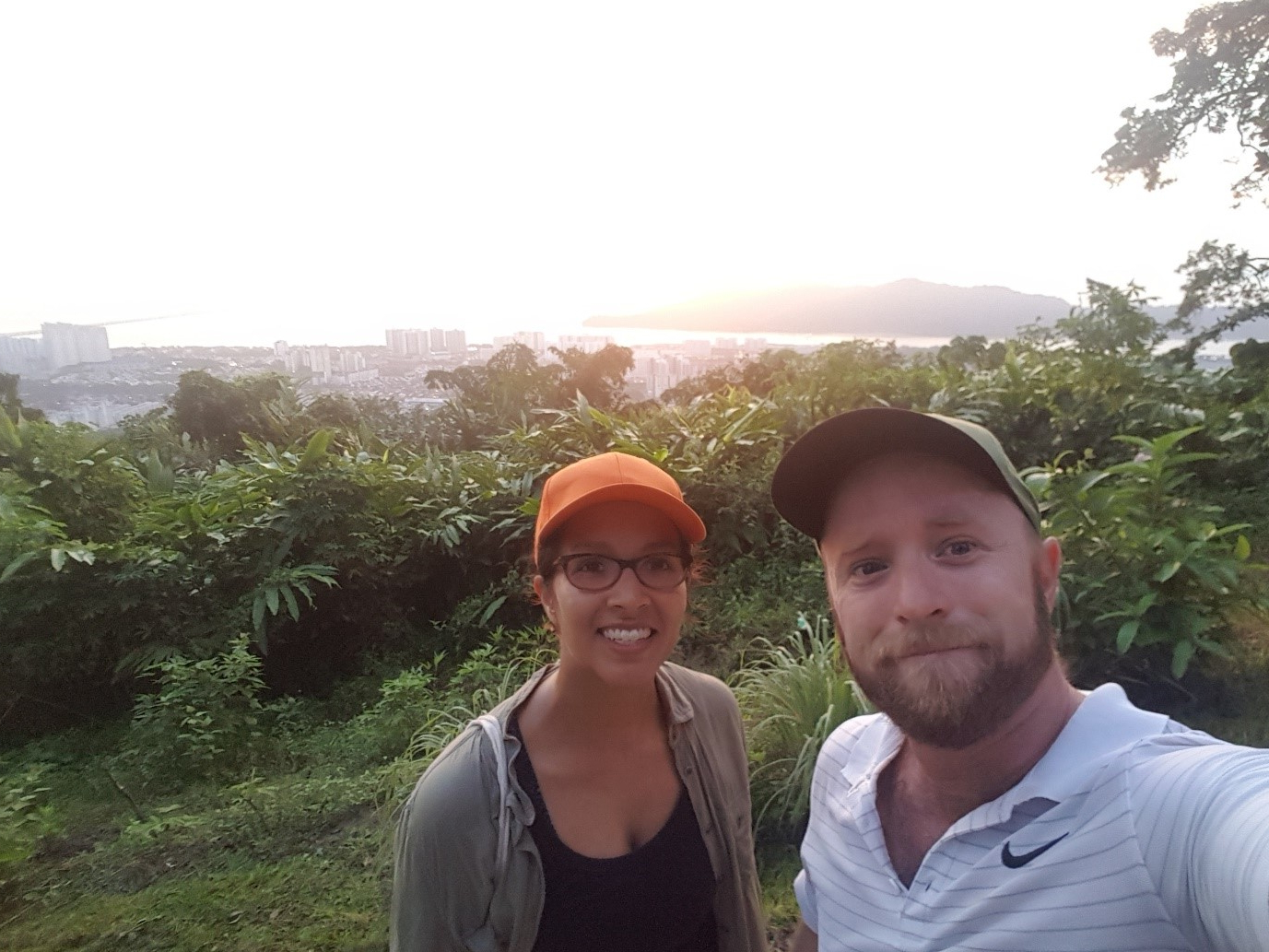
Bianca Das and David McGill on an early morning hike in Penang. This was a great opportunity to chat about the masterclass and the major things we took from it back to our jobs/teams (10th November, 2018)
Management VS Leadership
Something worth defining is the difference between management and leadership. They often get lumped together and they are inextricably entwined, but the differences helps to explain the components separately and how they work together. Management is a verb and generally relates to something ‘we do with people’. It can be operational; such as managing processes and things. Leadership is about listening to your team, being a role model and reinforcing the vision for your science/project or team. We lead people, by engaging them and showing them how we can be good scientists. In both cases if done poorly….
“Poor management of projects results in poor science”
“Poor leadership of scientists leads to poor science”
Good management and quality leadership start with effective personal management and understanding your personal leadership style. Once you have sorted yourself out, then you can go about working on your team(s), kind of like the oxygen masks on aeroplanes.

Teams & Project Management
We can’t assume that our project partners understand the project in detail, let alone what we want to achieve/do as well or as much as we do. A few things to do with your team to ensure that they know what’s going on and see your vision:
- Collaboratively setting goals allows everyone involved to understand what we are aiming for and creates joint ownership and drive for project outcomes. When you set goals – remember to make them SMART! It’s easy for targets to be loose and in the end lost, so make sure you make them clear and timebound.
- Performance management might seem like a boring, administrative and unimportant task for most of us, but it works and does wonders for identifying challenges with your team (or yourself) and puts steps in place to overcome it. One thing it does really well is to identify if/when people need training, and if they do – make sure you provide it to them.
- Spend time with your team. Make sure you allocate time for working with each team member (as required) to ensure they have the right support to achieve their own goals and those of the project.
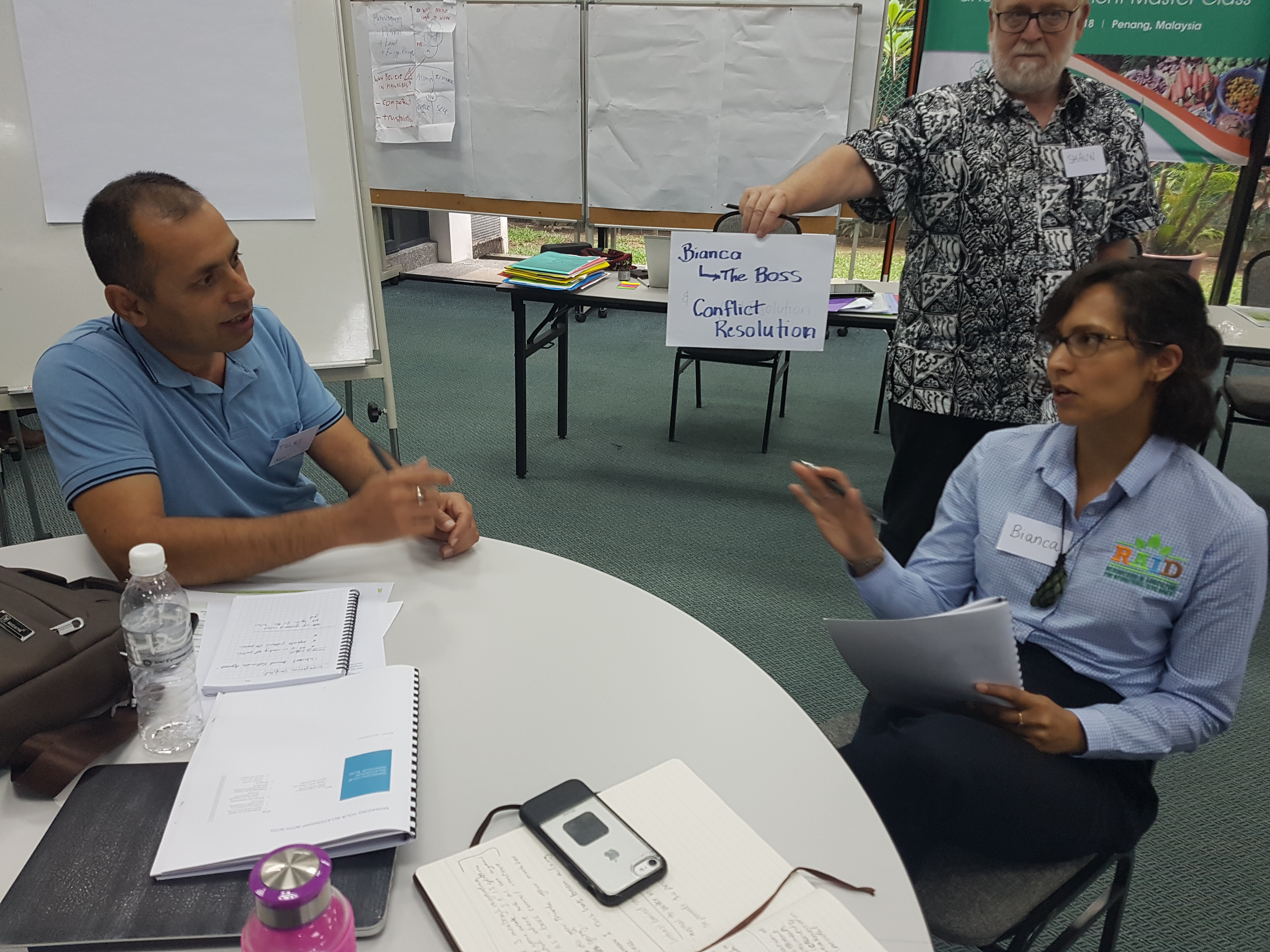
Bianca with Tulasi giving him a lesson in conflict resolution (Shaun Coffey in the background giving critical input).
Time + Space allows for creativity
Wise words from none other than John Cleese, something along the lines of – iterations of writing/presentations are important. Letting your sub-conscious sleep on an idea is a good idea. It will inevitably help your presentation or document to get better – it’s SCIENCE (and its proven)!!!
What does this mean for us in our day to day schedule?
- Avoid interruptions. Give yourself ‘time and space’ to let your thoughts/ideas develop. It helps, especially for moving some more complex tasks/concepts forward.
- Allow your inner ‘creative tortoise’ to come out. If needed, create your own little oasis of time/space where you have a chance to not listen to others. It is important! Maybe you need to make this part of your daily schedule? Some people use the Pomodoro Technique others might have a ‘closed-door’ policy in the morning, but then go to a more open door policy after lunch.
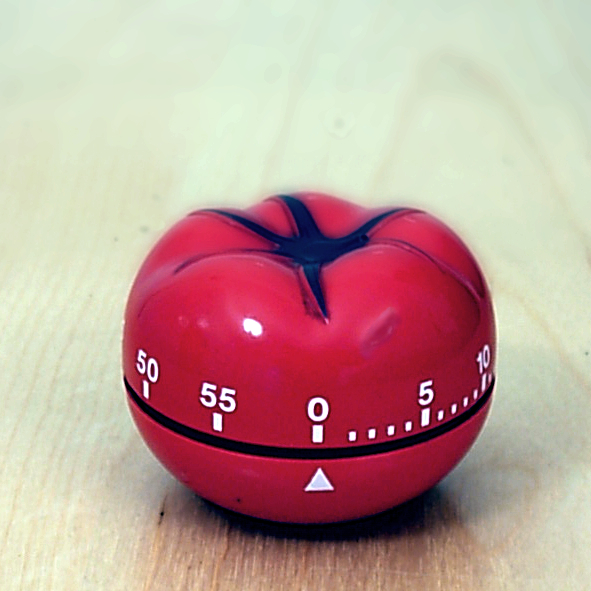
Balance and sleep gets you ahead
These are talked about often, but often not given the gravity they need for people to embed more solidly in their daily routine. “Sleep your way to the top”, might sound risqué, but by giving your brain ‘time & space’ to think helps you to get some balance and to use your sub-conscious to gain clarity in your role or perhaps overcome a complex challenge you’re trying to solve.
Personal life + exercise is critical. If we don’t lead in life (i.e. outside the office), then the team can’t see you leading a balanced life and may very well not ‘believe’ you when you try to manage them in the office. A good example of this is those late night emails. If you’re doing emails at 2 am, do you expect your team to be doing the same? Maybe that’s what they think – and it stresses them out getting emails from you at that time. If so, perhaps it’s better to keep your emails to office hours so that you can lead by example and show your team that you can meet the project/team goals within working hours.
Team building
“Let’s go for a hike!” “No, let’s go for dinner!” What’s your style?
Different people build teams in different ways. One thing that came up during the week was how/where/what to do with a team to help build some relationships and get them out of the office. David is a firm believer in the idea of “there’s always time for a hike” and shared his experience of taking his team for a hike at ‘The Rock’ near Wagga Wagga a few years ago (see picture below). According to him, they had never done anything like that before, but loved the walk (and view) and are always talking about it. Although advocating group exercise activities, we do realise that everyone and every team has their own style….so work out what works for you and then make sure you do put time into building your team both inside and outside the office.
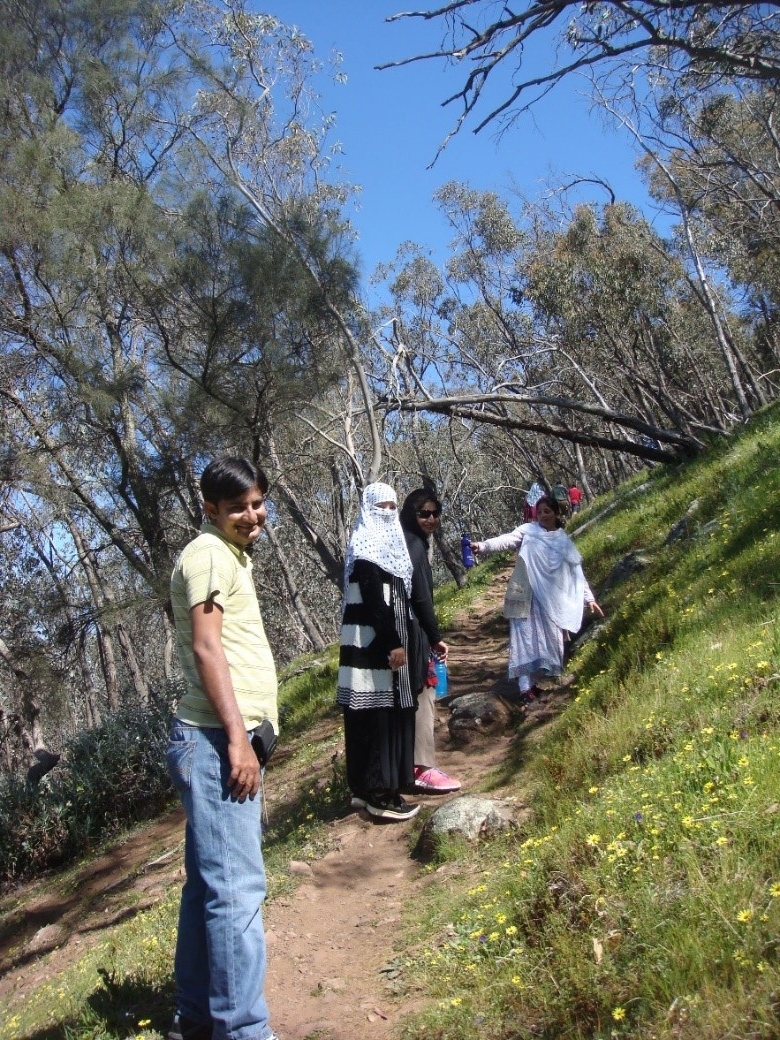
Some of David’s team members (Aijaz, Zahra, Shumaila and Sobia) from the Dairy extension project in Pakistan hiking up ‘The Rock’ (September, 2014)
Good luck with your own self-management and that of your teams. Let us know if you have any questions about the Masterclass and we will be happy to share some information. We are hoping to run at least one more RAID workshop on this same topic with the support of the Crawford Fund.
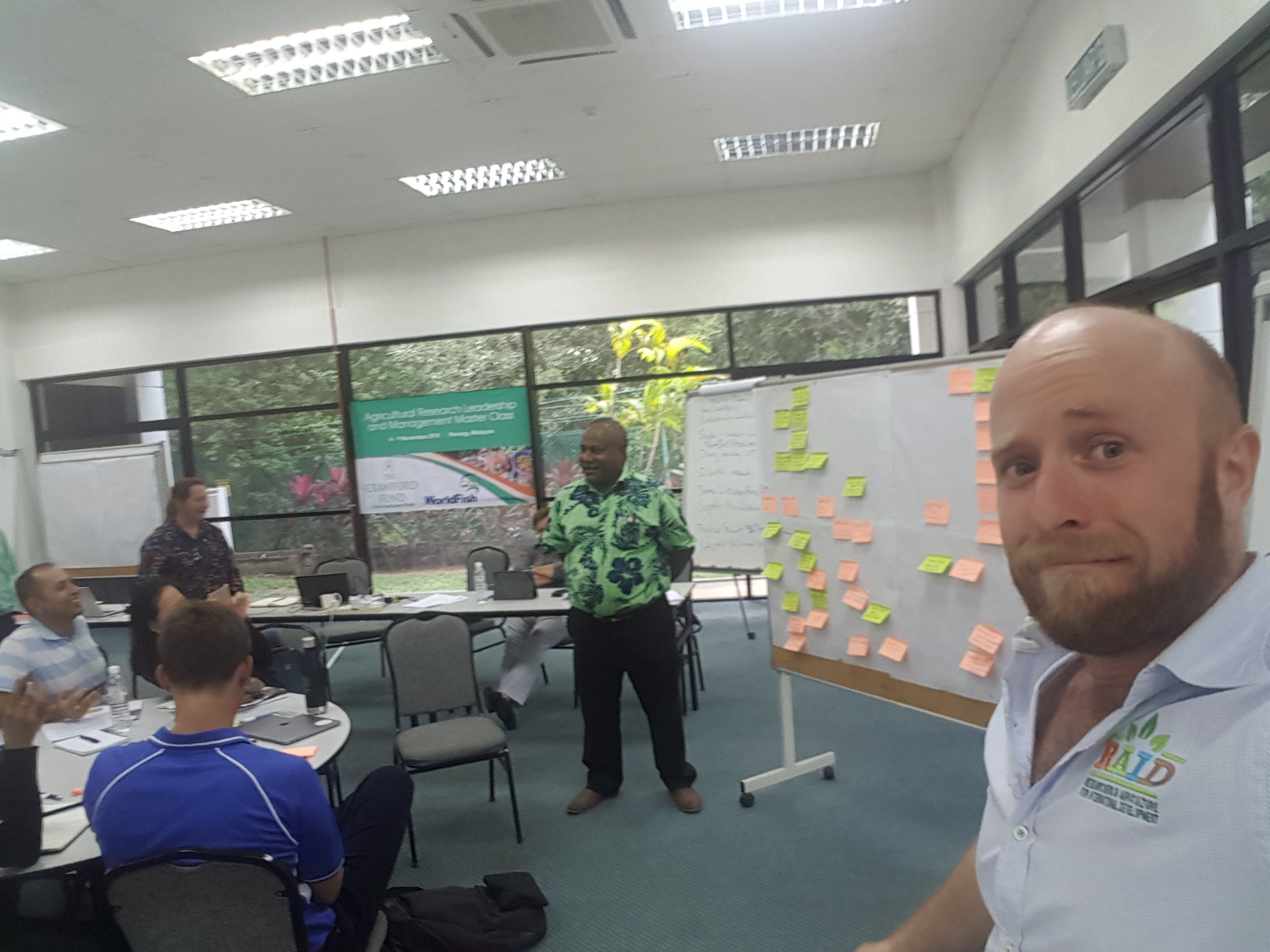
David and his group presenting (with Sergie leading the charge) their critical pathway activity


